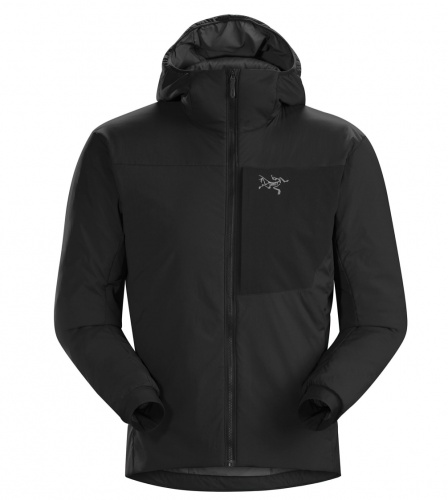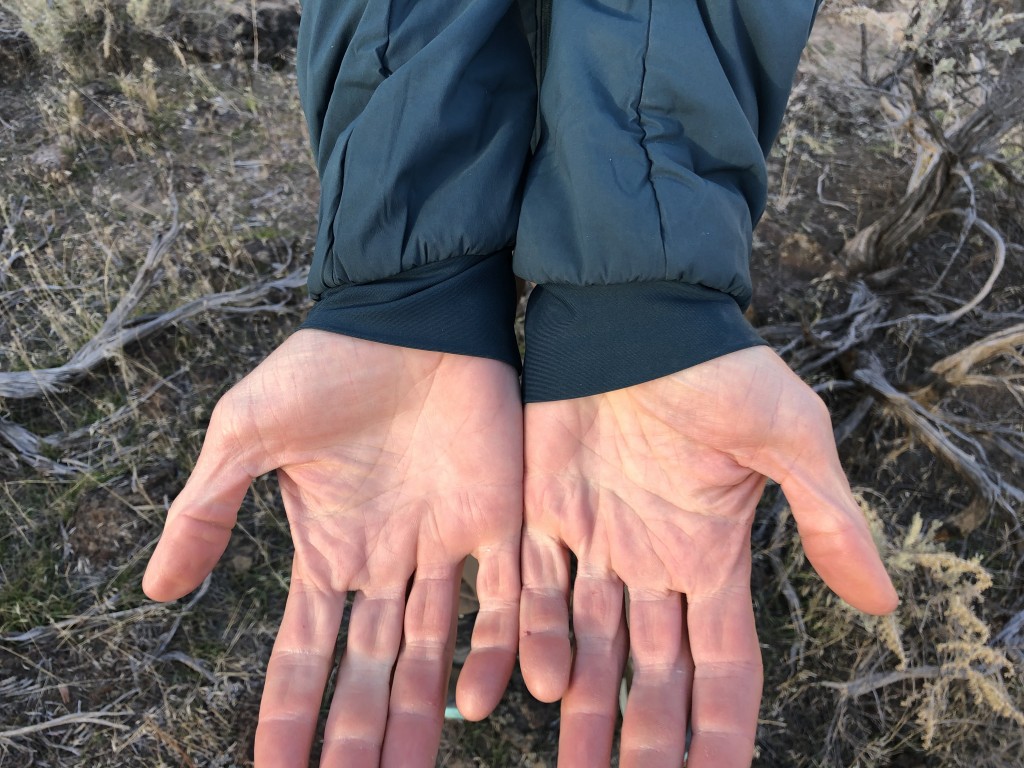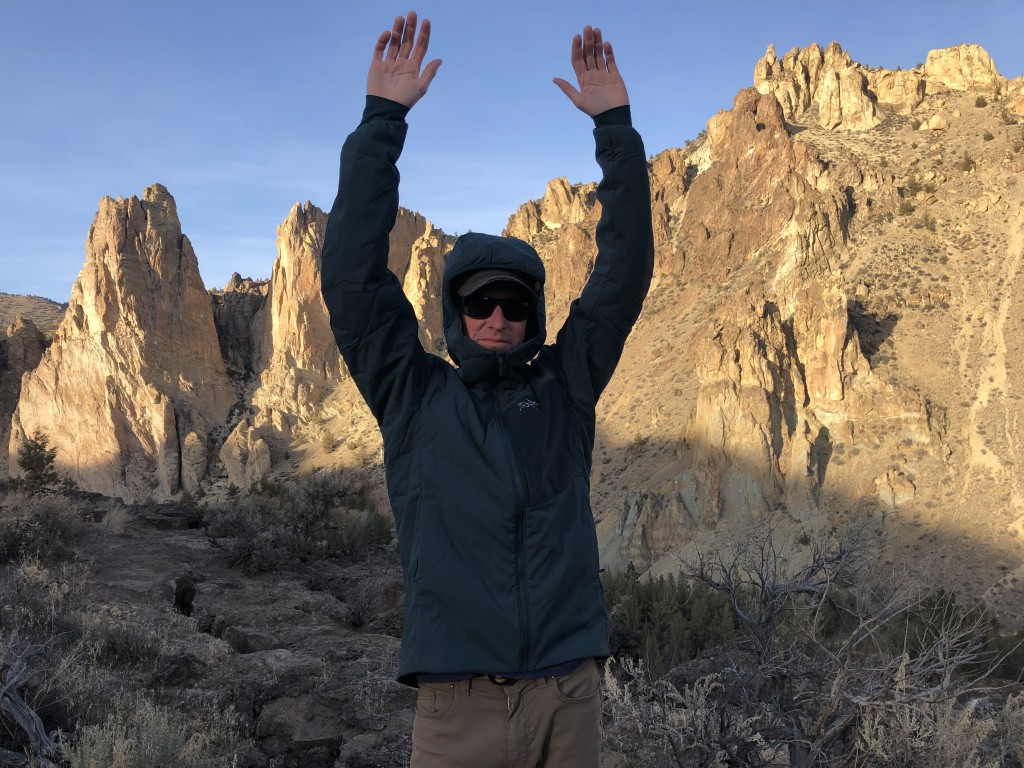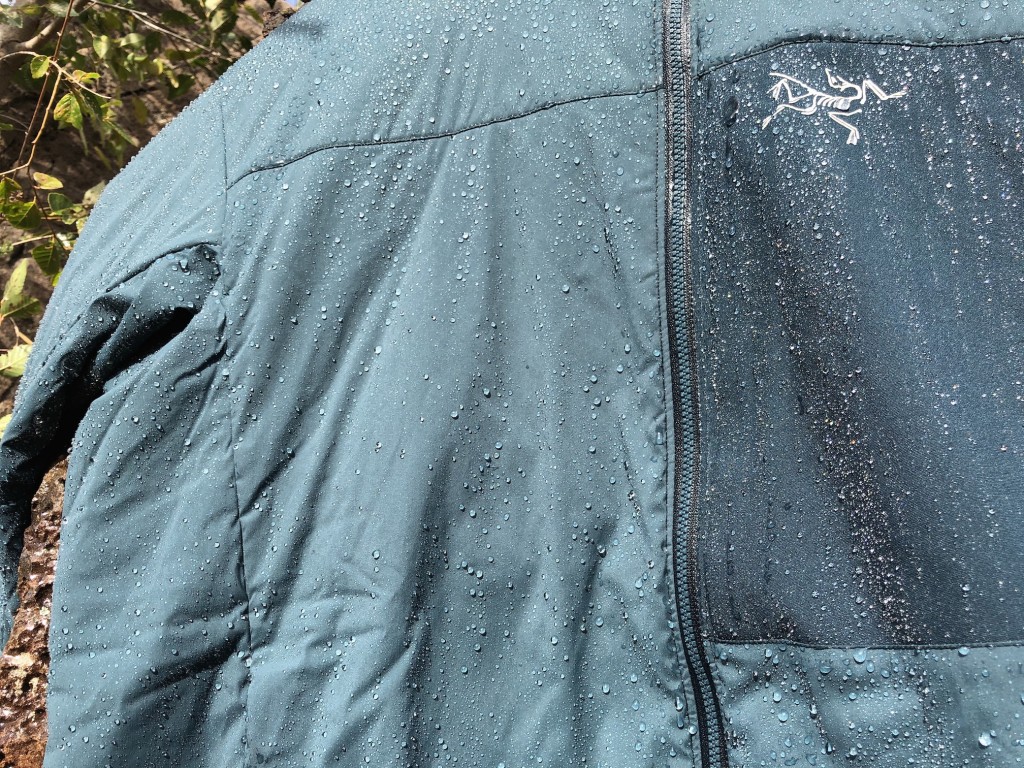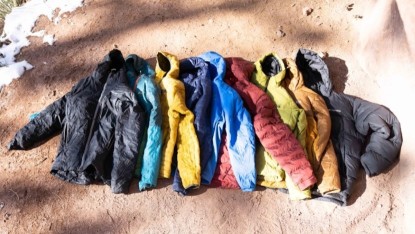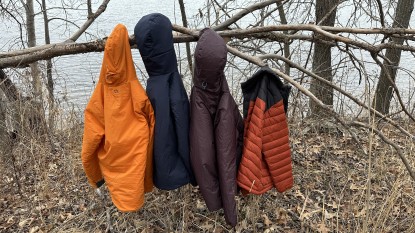The color we below tested is no longer offered, but Arc'teryx has released some updated colors for this insulated jacket.
Arc'teryx Proton LT Hoody Review
Our Verdict
The color we below tested is no longer offered, but Arc'teryx has released some updated colors for this insulated jacket.
Our Analysis and Test Results
The Arc'teryx Proton LT was updated in the fall of 2019, although casual observers will be hard-pressed to notice the differences. The main change is that the face fabric was updated to be more durable and abrasion-resistant, an excellent attribute for climbers. The liner fabric was also changed, while the main insulator is now Coreloft 80, a bit heavier than the standard 60g/m2 synthetic insulation used in most lightweight active layers.
The “LT” in the name of the Proton means “lightweight,” which is compared to other similar jackets in Arc'teryx's line. However, to us, it feels slightly thicker and heavier than comparable jackets, which made us more likely to use it as a stand-alone piece on chilly days, and slightly less likely to want to layer over the top of it for high exertion activities. Its hood is helmet-compatible and includes an elastic drawstring with buckle at the back of the head that allows for tightening up the fit if need be. It also has two hem drawcords, although we found the buckles to be easy to tighten, and a real pain to loosen back up again. The pocket layout includes one Napolean-style chest pocket with a zipper, while both of the hand pockets are also zippered.
Performance Comparison
Warmth
The Proton LT uses Coreloft Compact 80 insulation in the body of the jacket, with Coreloft Compact 60 insulation in the hood. What this means is that the insulating material is denser at 80g/m2 than the 60g/m2, which is pretty much standard amongst its closest competitors. Indeed, when you put this jacket on, it feels a bit heavier and thicker than the others, and the way that it seals out the air around openings helps contribute to this feeling of warmth. We especially like that it includes a hood drawcord, and also found that the larger elastic cuff enclosures seal off these openings better than most.
While we found it to be slightly warmer than some of its closest competitors, we still want to point out that this is not a super warm jacket. It is designed to be used while moving and with breathability in mind, so it is still lighter on insulation than one might expect for a warm winter jacket. Used as designed, while moving or as a mid-layer, we think it provides plenty of warmth for most days and climates.
Weight and Compressibility
Our size small test model weighed in at 12.8 ounces, and Arc'teryx says on their website that the average size small will weigh a little less than 13 ounces. Compared to the competition, this number lies pretty close to the middle, and this jacket is neither the lightest nor the heaviest. Anecdotally, it feels a bit thicker and heavier when wearing it than most of the other active insulated layers we tested.
What this jacket lacks is the ability to stuff it into its own pocket and clip it off to a harness or outside of a pack. While most of its competitors have this feature, and we wish that it did as well, the reality is that compressing synthetic insulation repeatedly leads to it breaking down more quickly, and many of these jackets are so hard to stuff into their pockets that it makes the feature almost worthless anyway.
Comfort
We gave the Proton LT high marks for comfort, and also feel that it has one of the best fits that you can buy. The jacket is athletically tailored and not too bulky or baggy, while also not feeling constricting in any place. We especially love the fit in the shoulders and the length of the arms, which allows us to climb in any manner without facing resistance from our clothing. The gusseted elbow design, in conjunction with stretchy fabrics, also facilitates this sense of freedom of movement while wearing the Proton. It is the excellent fit and perfect mobility that helped propel this jacket to the top of the rankings.
The interior liner fabric is made of Dope Permeair 20, a name that we can't help but love. While it is smooth and comfortable against the skin, offering no added texture or friction to catch up on base layers we have on underneath, it also isn't quite as snuggly, soft, or cottony feeling as some other top-rated jackets. Regardless, we feel this is one of the most comfortable jackets you can buy.
Weather Resistance
Active stretch fabrics are not known for their wind resistance, as they are designed intentionally to be air permeable to allow for greater breathability. Air permeability means that a sharp wind will cut right through this jacket, although in this regard it performs no different than any other of similar nature. Be warned; if you are going somewhere on a cold and windy day, this jacket will only serve you well if you throw a shell of some nature on over the top.
What really impressed us, however, is the performance of the DWR coating. We sprayed it with a hose for over a minute to see how it would hold up, forcing way more water at a higher velocity than would be encountered in even the stiffest downpours, and the water simply beaded up and ran off, with minimal absorption of any sort.
In this regard, it performed far better than most of its competitors, making it a solid choice for keeping you warm in wet, dank climates.
Breathability
While the Coreloft Compact 80 insulation is designed to be super breathable, we couldn't notice a distinct advantage in breathability with this jacket compared to those that used Primaloft, or Patagonia's new FullRange insulation. We couldn't exactly say that we felt it performed worse, either, but rather that this is a breathable jacket that performs very similarly to all the others with a similar design.
Value
Purchased at retail prices, the Proton LT has one of the highest price points of any synthetic insulated jacket you can buy, although others also share this high price. Arc'teryx has long been known for costing more than most brands, so this should come as no surprise, and combined with the stretchy and breathable technology, one could justify how much it costs. Since we think it is one of the best jackets you can buy, it still presents good value in our eyes, but also point out that this is well within the realm of what a down jacket might cost, so encourage prospective buyers to simply be sure this is exactly what they want before purchasing, and to not expect a lower price simply because it uses synthetic insulation.
Conclusion
The Arc'teryx Proton LT breathes well while also providing more warmth than many of its competitors, and fits perfectly for active pursuits like climbing and skiing. Fast drying and even water-resistant, this is an ideal choice for damp climates, and also looks stylish enough to wear out on the town.


